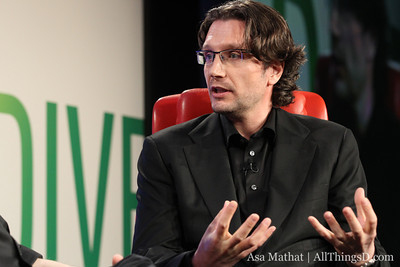
The most interesting things at CES were the things that weren't at CES. While I'll discuss the others in due time, one notable absence from CES was the often rumored Intel set-top box. Erik Huggers, the head of Intel's new Media division, confirmed today that Intel was working on a complete IPTV solution: service, software and hardware, all to be sold direct to consumers.
Erik confirmed that Intel Media was an all new group within Intel, staffed with folks from Apple, Netflix and Google among other places. Erik himself came from the BBC's Future Media & Technology group. Intel seems to know that it can't pull something like this off using internal talent alone. Bring in smart outsiders then give them the support of Intel seems to be the approach here - and it makes sense.
Details are scarce, and I'd expect them to be for quite some time. Intel committed to launch the box and service this year and it'll support features like catch-up, video on demand as well as live TV - all delivered over the internet. A list of content providers as well as pricing are two notable bits of information that were missing from today's disclosure. Until we get closer to launch, I wouldn't expect to hear anything on either front. Intel did mention that this wasn't a value play, and there was a strong focus on content bundles, which means this is likely not a full á la carte solution that's going to drive cable TV providers out of business.
I'll refrain from speculating publicly here, but there's a lot that makes this interesting. Some questions to ask:
1) Why is Intel getting into the TV business? Why now?
2) If not competing aggressively on pricing, then how will Intel differentiate?
3) Intel's divisions traditionally require high operating margins to survive in the long run.Â
Unlike Intel's smartphone aspirations, its work in the TV space won't have the time to eventually build up steam. Intel also won't have the burden of playing catch up in a quickly maturing industry. The established players in the cable TV space have done a great job of stifling innovation for quite a while. It's clear that a more revolutionary approach is necessary to liberate live TV content. The question is whether or not Intel can be the first company to succeed where others have failed.
Many expected Apple to be the first to tackle and succeed here. Perhaps Intel will beat them to the punch? (this helps answer question #1 above).
More thoughts on this later.Â
Â
Source: AllThingsD
No comments:
Post a Comment